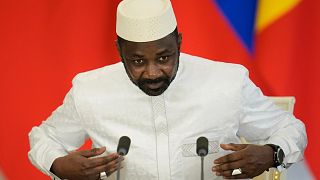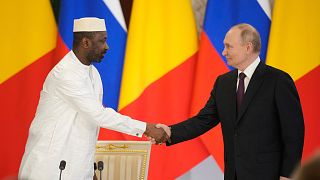Mali
Mali will hold a “national dialogue conference” in March 2017 to discuss how to implement the peace agreement signed in mid 2015, President Ibrahim Boubacar Keïta has said.
“An important milestone in the rehabilitation of social cohesion and living together in Mali will be fronted during the March 2017 National Conference of Understanding,” President Keïta said in a message to the nation that was televised on Saturday.
“As specified in the agreement for peace and reconciliation, this conference should allow for an in-depth debate between the components of the Malian Nation on the root causes of the conflict” in northern Mali, Keita added.
The peace agreement, concluded after long negotiations in Algiers, was signed in May 2015 by the Malian government and its favorable groups, and in June 2015 by the former Tuareg rebellion in northern Mali, but has faced difficulties on how it should be implemented.
President Keïta acknowledged that the process was experiencing “delays” but assured that his government was keen to abide by the agreement.
Northern Mali had fallen in March-April 2012 to jihadist groups linked to al-Qaeda, following the rout of the army by Tuareg rebels who were later evicted.
The jihadists were largely driven out of the vast region following the launch in 2013 of an international military intervention that is still ongoing.
But entire areas remain outside the control of Malian and foreign forces, regularly the target of deadly attacks that have spread from the north to other regions since 2015.
More than 60 U.N. peacekeepers have been killed while on active service in Mali, making it the most dangerous active deployment for the U.N. in the world.
Keïta also announced the establishment of interim authorities, which were provided for in the peace agreement, in areas where municipal elections could not be held on 20 November.
The elections, whose results have not yet been announced, aimed at electing some 12,000 municipal councilors whose mandates have expired since 2014. The polls were marred by violence and low participation.
“In the first quarter of 2017, the interim authorities will be installed in all the localities where communal elections could not be organized,” Keïta said.
He added that the operation will accelerate “the redeployment of the administration and facilitate the resettlement of basic social services” in the areas concerned.
Keita also indicated that he would submit a bill to the National Assembly at its next session to revise the Constitution. The bill will include the creation of a Senate.












01:39
Sustainable development financing conference opens in Seville
01:13
DRC and Rwanda to sign peace agreement on 27 June
01:41
UN warns of looming famine in Sudan, Gaza and 3 other global hunger hotspots
01:11
Ukraine-Russia agree to new prisoner swap but talks fail to yield ceasefire
Go to video
Mali: Army foils attack in Timbuktu, a day after jihadist assault killed 30 soldiers
01:46
Gaza residents plead for ceasefire amid humanitarian crisis